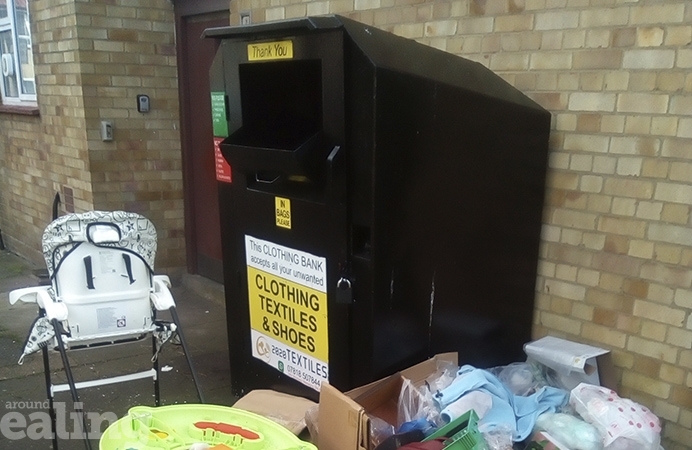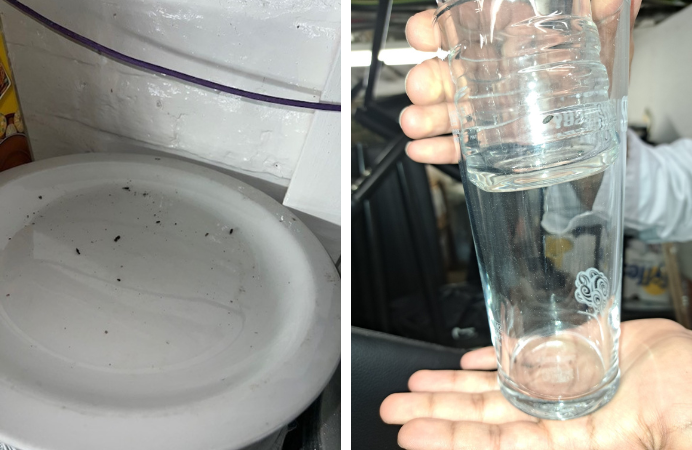A company, and its management, was ordered to pay out more than £14,000 after setting up textile donation banks illegally – and then selling the clothes for profit.
West Drayton-based company 2020 Textiles placed clothes collection banks strategically across the borough. They resembled charity clothes banks, to encourage donations, but 2020 Textiles was selling the clothes on to make money.
Ealing Council summonsed 2020 Textiles, and its owners, to court for obstructing the public highway without consent. The business, based in Horton Close, West Drayton, owns multiple donation banks, dotted across west London. The council’s officers discovered 7 in our borough in 2023 and made sure they were removed.
At a hearing on 11 February, Uxbridge Magistrates’ Court heard that the company was owned jointly by Michael Hards, of Kneller Road, Witton; and Rajesh Voralia, of Longfield Drive, Sheen.
The day-to-day running of the business was carried out by Mr Voralia, who is currently barred from being a company director after a separate court hearing in 2020.
However, the court determined that Mr Hards, on the other hand, took no part in the management or running of the company – only maintenance or handyman work – so, he had no control over the business.
Consequently, the court held Mr Voralia more accountable for the offences connected with 2020 Textiles. And Voralia accepted he was the one managing the business, and that it was run for-profit.
- 2020 Textiles, as a company, was fined £8,000, ordered to pay £1,500 court costs and a victim surcharge of £2,500
- Mr Voralia was fined £875, ordered to pay costs of £400 and a victim surcharge of £350
- Mr Hards was fined £227 and ordered to pay £100 costs and a £191 victim surcharge
In total, these amounts came to £14,143.
‘Taking advantage of residents’ good nature’
Councillor Paul Driscoll, the council’s cabinet member for climate action, commented after the sentencing.
He said: “Companies like these place textile donation banks out in places just as actual charities do, like the Salvation Army. Residents then donate clothing thinking they are donating to a charity. But they are giving away their items to a for-profit organisation. It is a callous way of taking advantage of residents’ good nature, to make money for themselves. And it takes away donations from the real charities trying to help people in need. So, it is both anti-social and deceitful.
“I am pleased this particular company, and those running it, have been dealt with by the court and that our council officers moved to seize the banks it had placed around our borough. We will simply not tolerate this.”





